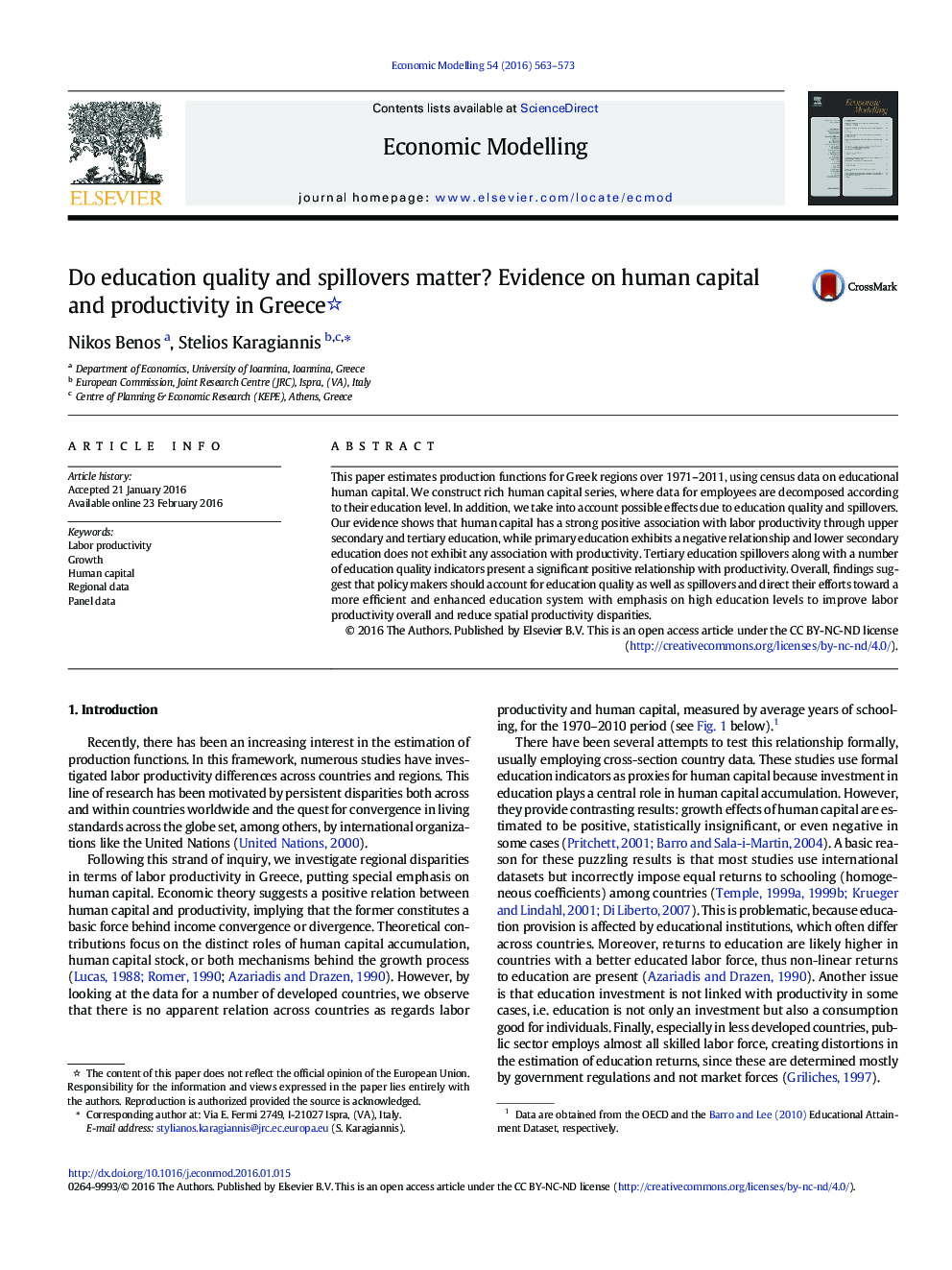| Article ID | Journal | Published Year | Pages | File Type |
|---|---|---|---|---|
| 5053415 | Economic Modelling | 2016 | 11 Pages |
â¢Our evidence shows that upper secondary and tertiary education enhance labor productivity, while primary education dampens it.â¢Tertiary education spillovers present a positive relationship with productivity.â¢Human capital quality indicators exhibit a positive association with productivity.â¢Policies should account for education quality and spillovers and put emphasis on upper education to improve labor productivity in Greece.
This paper estimates production functions for Greek regions over 1971-2011, using census data on educational human capital. We construct rich human capital series, where data for employees are decomposed according to their education level. In addition, we take into account possible effects due to education quality and spillovers. Our evidence shows that human capital has a strong positive association with labor productivity through upper secondary and tertiary education, while primary education exhibits a negative relationship and lower secondary education does not exhibit any association with productivity. Tertiary education spillovers along with a number of education quality indicators present a significant positive relationship with productivity. Overall, findings suggest that policy makers should account for education quality as well as spillovers and direct their efforts toward a more efficient and enhanced education system with emphasis on high education levels to improve labor productivity overall and reduce spatial productivity disparities.
